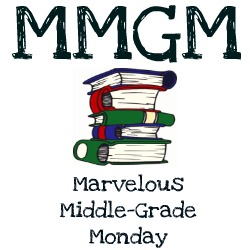I’ve just wrapped up my two day seminar, listening to David Farland (aka David Wolverton) and it was awesome! Â In fact, all of it–or, um, everything–was awesome! Â Especially this pic, of the two of us.
Very memorable, no? Â I think it’s the best pic that’s not a pic but rather a pathetic stick drawing representation that I’ve ever seen, and I’m immensely proud of it. Â All the same, I’ve made a note to do better, in future, at seizing the selfie moment.
Since you’re probably not quite so inspired by the pic as I am, I’ll share a few of my takeaways from the seminar. Â My full notes sprawl over almost twenty computer pages, written in short hand. Â But for those you’ll have to attend one of the seminars yourself and take your own. 😉
Insight the first: Be careful not to ‘over-hook’ your reader. Â Just as you won’t get far catching delicious little trout if you dangle a wonker of a hook like this in front of their faces–
–you also don’t need to shove your story’s hook in your reader’s face. Â Better to entice them in with several small hooks that they’re less likely to notice. Â My guess is this is especially true when writers are first trying to hook in wily ‘fish’ such as agents and editors, who have a keen and experienced eye for picking out over-sized or clunky opening hooks.
Insight the second: In a discussion of whether to use first person or third, Dave recommended (or stated a preference for) first person when writing middle grades. Â This was because kids seem to have a harder time with the head-hops that often come with third person, and it may be easier for them to settle into the more limited and immediate first person pov. Â This struck me as wise–and not just cause my novels tend toward first!
Insight the third: Look for ways to add emotional resonance to your book, and making sure it will be truly impactful on the reader. Â There are several ways this can be done, such as using judicious details to fully flesh out scenes and truly transport the reader there, building in references so the reader recognizes subtle cultural connections between themselves and the characters, and stacking the emotional impact of scenes by revisiting turning points or moments of change. Â All truly fantastic tools I can’t wait to use in my books!
Insight the final: We also discussed the dangers of golden retrievers. Â The tricky part is that you don’t see the threat in them. Â Do you?
But in Hollywood, golden retrievers are people who approach authors and pretend to be some sweet aspiring director with great connections and lots of passion to turn your novel into a movie, but little cash. Â They persuade the author to sell the option for their book for less than they ought–because how can you turn a golden retriever away?–and scamper back to Hollywood where they’ll pass that option along to whatever bigwig tightwad you would have never sold to for that small fee.
It all sounds rather more complicated than necessary, but the takeaway point is that you shouldn’t trust stray doggies if they hark from Hollywood!
Look for my spotlight of LUG soon, and check out Shannon’s blog for more Marvelous Middle Grade Monday reviews, interviews, posts and spotlights. Â Happy MMGM!




Janet Smart
Suzanne
ChemistKen
Suzanne
Greg Pattridge
Suzanne
Joanne Fritz
Suzanne